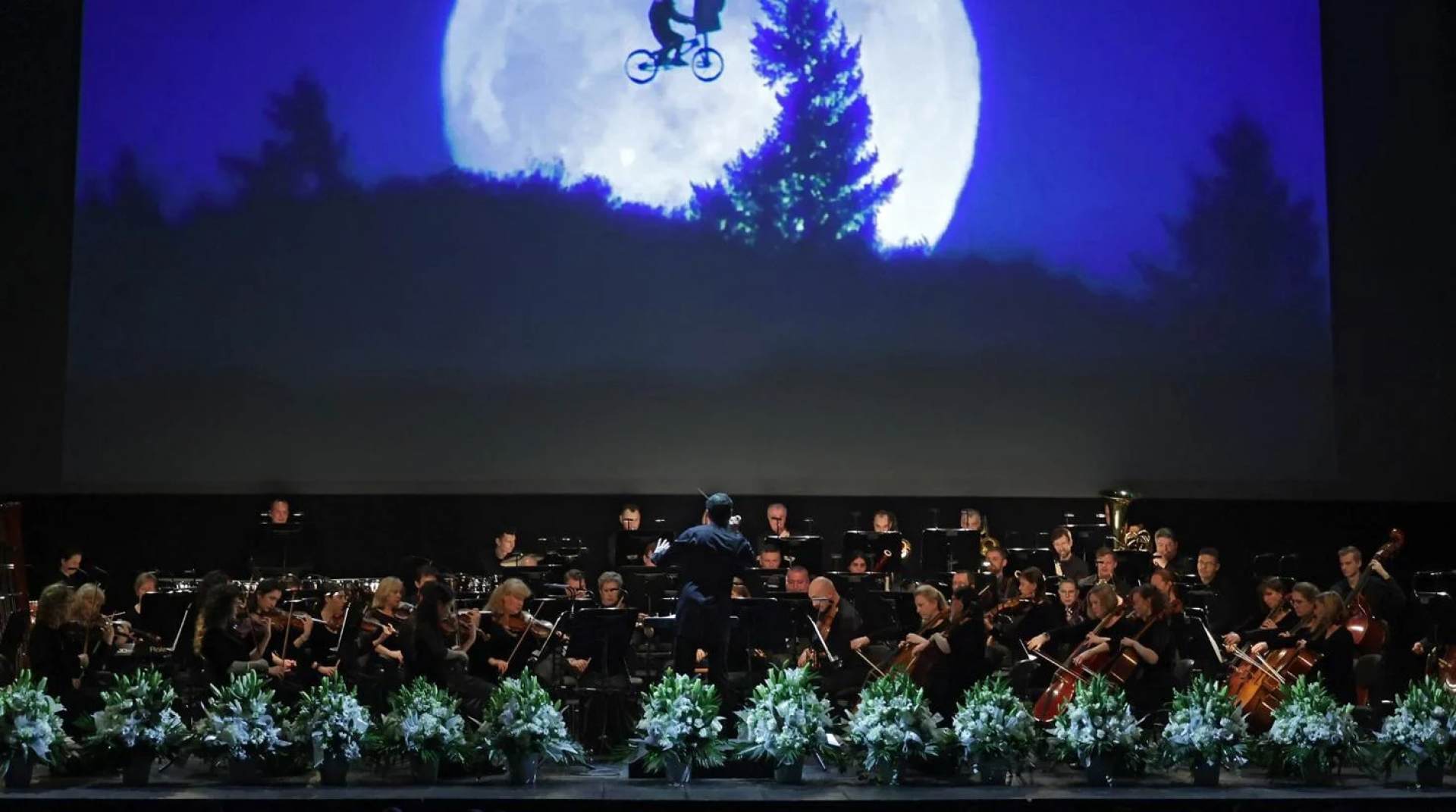John Williams & Hans Zimmer: The best cinema music
December 2024 | ||||||
|---|---|---|---|---|---|---|
Mo | Tu | We | Th | Fr | Sa | Su |
The two great protagonists of this concert are the unforgettable John Williams and Hans Zimmer
Music from some of Hollywood’s greatest films storms off the silver screen and on to the concert stage, in a program that will thrill not just moviegoers but anyone who loves music.
The heroics of Star Wars, the daring of Indiana Jones and the magic of Harry Potter inspired John Williams to create some of the best-loved film scores of all time. With blazing brass and soaring strings, this orchestral concert highlights the phenomenal composer whose music has defined movie-going for three generations, with themes from Superman, Jurassic Park, Raiders of the Lost Ark and Saving Private Ryan among dozens that have become classics themselves.
Since the 1980s, Zimmer has provided knock-out music for blockbusters including Gladiator, Inception, Sherlock Holmes, Pirates of the Caribbean, The Dark Knight trilogy and multi-award winner The Lion King, as well as numerous other film and television projects.
Adding slide guitars, out-of-tune pianos and ticking watches to synthesisers, samples and percussion, combining vocals with Romani tunes and shimmering strings, Hans Zimmer has created scintillating sound worlds that evoke eras from Ancient Rome to the far future.
Program and cast
Hollywood Symphony Orchestra
Gran Teatre del Liceu
Barcelona's opera house, the Gran Teatre del Liceu, was founded on the Rambla in 1847 and has continued over the years to fulfil its role as a culture and arts centre and one of the symbols of the city.
Today it is publicly-owned (by the Government of Catalonia, Barcelona City Council, Barcelona Provincial Council and the Ministerio de Educación, Cultura y Deporte) and administered by the Fundació del Gran Teatre del Liceu which, in addition to the aforementioned bodies, incorporates the Patronage Council and the Societat del Gran Teatre del Liceu (the old society of owners).
Origins: From 1837 to 1847
The Liceu evolved out of the Sociedad Dramática de Aficionados (Society of theatre-lovers) set up in 1837 at the instigation of Manuel Gibert in the former convent of Montsió by members of the National Militia, an organization of armed citizens with liberal leanings.
Barcelona's economy and population were growing fast at the time and the city needed a music conservatory. This led to the conversion of the Sociedad Dramática into the Liceo Filármonico Dramático Barcelonés de S.M. la Reina Isabel II (Barcelona Dramatic and Philharmonic Lyceum of HM Queen Isabel II). In addition to its theatrical activities, the new organization cultivated Italian-style singing and music.
The building on the Rambla
The original building was solemnly opened on 4 April 1847. The plans had been drawn up by Miquel Garriga i Roca, subsequently assisted by Josep Oriol Mestres. The project was funded by selling shares, which meant that many of the boxes and seats were to be privately owned. The shareholders formed the Societat del Gran Teatre del Liceu, known as the “Societat de Propietaris” (Society of Owners), which was in sole charge of running the Gran Teatre del Liceu from 1855 onwards, after it was legally separated from the Conservatori del Gran Teatre del Liceu.
The theatre was operated by impresarios who were given a concession to stage a specific number of productions in exchange for the proceeds from the sale of tickets not reserved for the Societat itself. This system was to endure until 1980.
The creation of the Consortium
By the last quarter of the 20th century this management system was no longer viable. In 1980, to avert the danger of the disappearance of an institution of such worldwide cultural renown, the Generalitat Catalonia's first government in modern times – set up a consortium, the Consorci del Gran Teatre del Liceu, which also incorporated Barcelona City Council and the Societat del Gran Teatre del Liceu. Barcelona Provincial Council joined the Consortium in 1985, followed by the Spanish Ministry of Culture in 1986. From then on the Consortium took over operation of the theatre.

 EN
EN DE
DE IT
IT FR
FR ES
ES RU
RU JP
JP RO
RO
